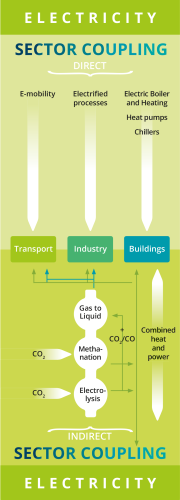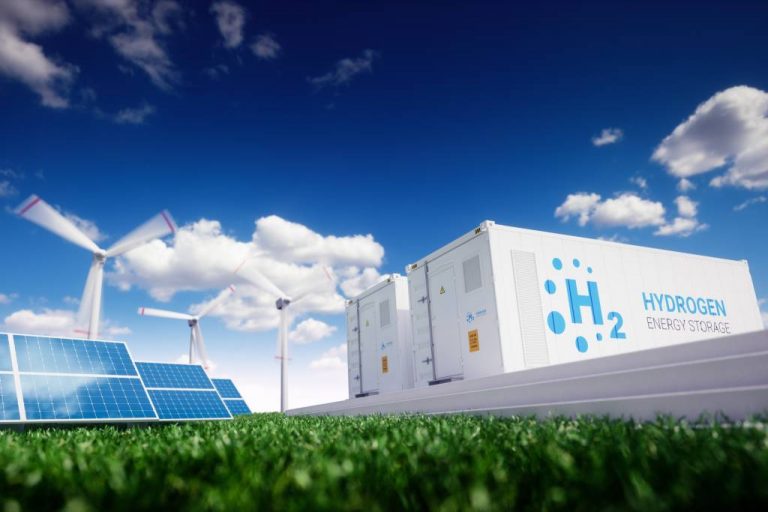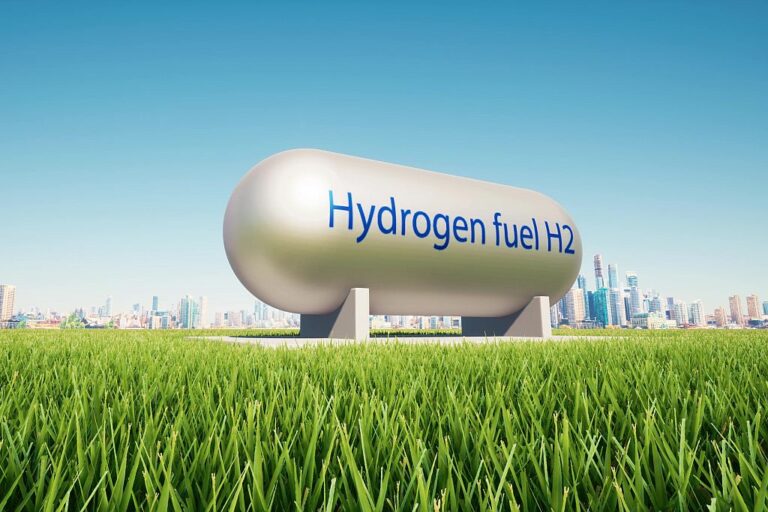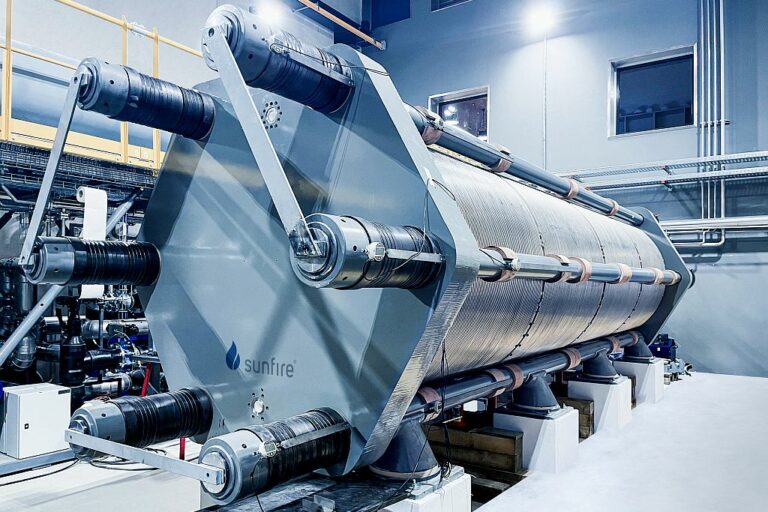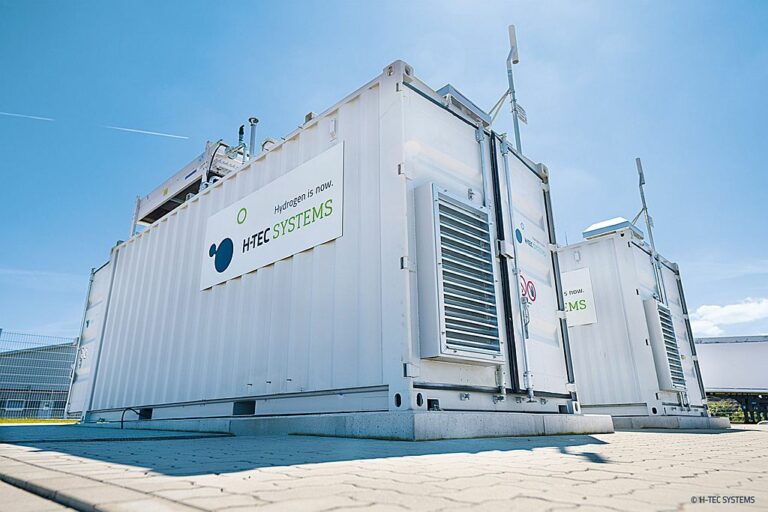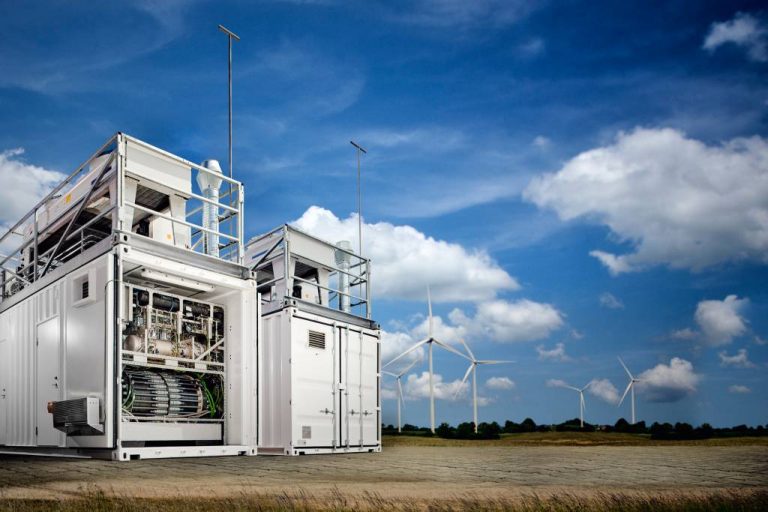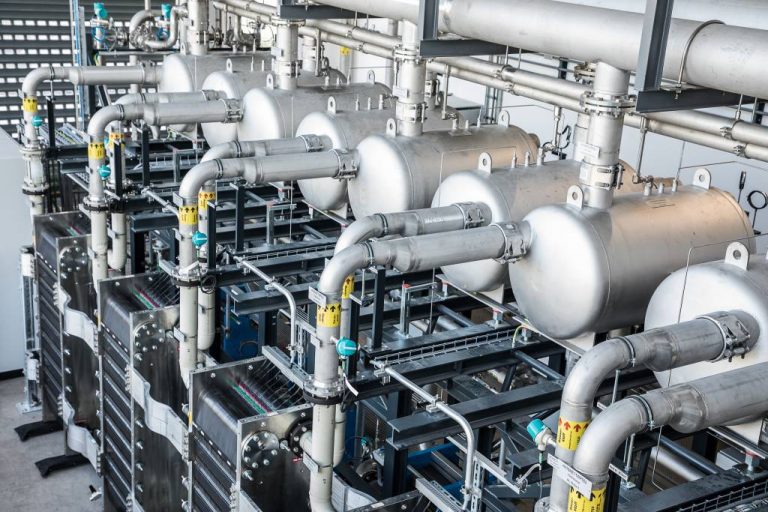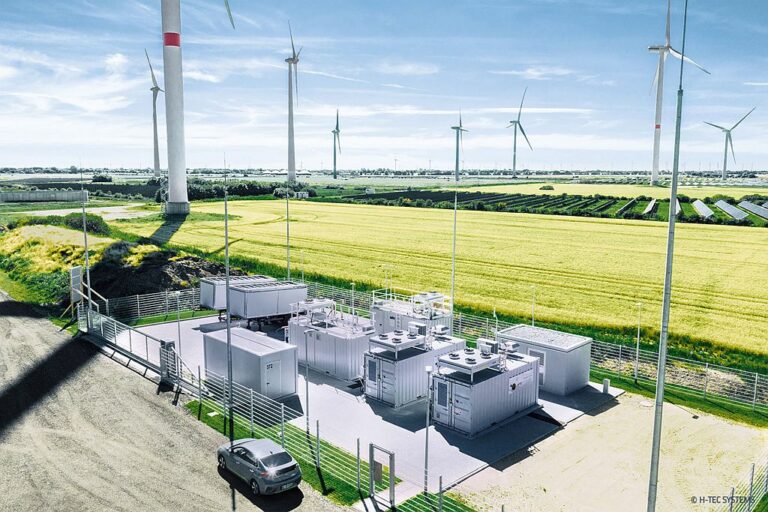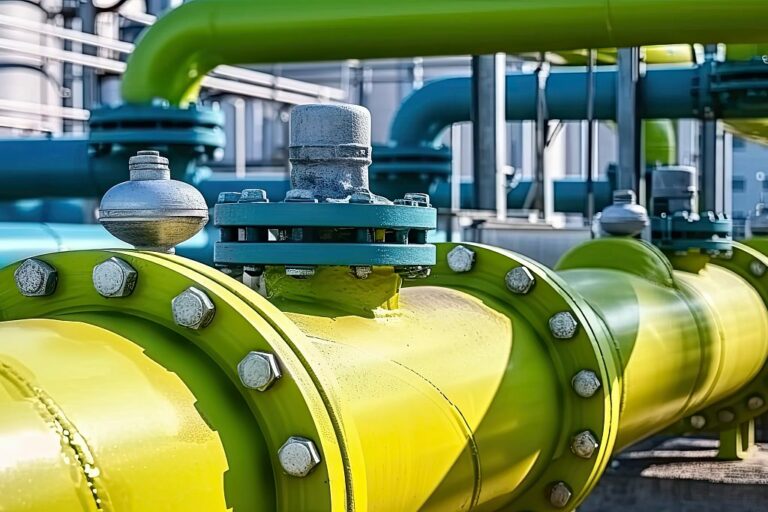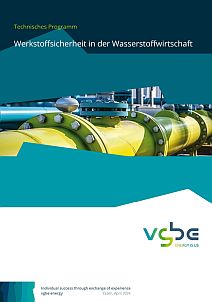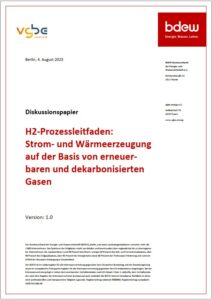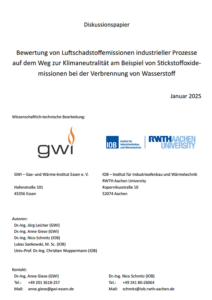Hydrogen
The energy supply of the future will be sustainable, environmentally compatible, safe and economical. The expansion of renewable energies is therefore one of the central building blocks of European climate and energy policy. Along with the increasing need for flexibility in the energy system, hydrogen is considered a key technology of the future.
Climate-neutrally produced hydrogen is a universal source of energy that plays a central role especially for sector coupling. vgbe activities are focussed on the intelligent design and efficient operation of hydrogen plants.
Hydrogen as the key to sector coupling
Hydrogen (H2) offers the advanatag that it can be used as source of energy in almost all sectors – such as transport, heat generation and industry. CO2 emissions can be fundamentally reduced across all sectors with climate-neutral H2. It can therefore be assumed that the global demand for H2 will rise sharply. Within the framework of national and multilateral agreements, many countries have already adopted strategies for the expansion of the hydrogen economy.
Technologies for the production of climate-neutral H2 are already available and are constantly being further developed through intensive research and demonstration activities. Hydrogen can be further utilised in many ways and, for example, refined into methane or liquid fuels. These options are also known as Power-to-X. With its know-how in the operation of energy plants, our industry plays an important role in the development of the H2 economy and Power-to-X technology. vgbe energy supports its members through various activities, especially with regard to technical issues.
Activities
The exchange of experience and, in particular, the development of practice-oriented solutions for the operation of water electrolysers form a mainstay of the association’s activities. vgbe energy provides support with operational management, maintenance and plant optimisation as well as with techno-economic, ecological and strategic challenges. We focus on the following areas in the hydrogen sector:
- Exchange of experience on the planning and operation of water electrolysers
- Best practice of electrolyser systems
- Business cases for hydrogen production under the respective framework conditions
- Improving availability, reliability and safety
- Water and wastewater treatment for electrolysers (onshore/offshore)
- Utilisation of by-products
- Hydrogen storage above and below ground
- Hydrogen compatibility of materials
- Thermal utilisation of hydrogen and H2 readiness
The vgbe-Standards reflect the state of the art for the generation and storage of electricity and heat. They are developed in close cooperation with operators and manufacturers.
Anwendungsbereiche sind u.a.:
- Layout, design and planning
- Purchasing and manufacturing
- Construction and commissioning
- Operation and maintenance
- Dismantling and recycling
For ordinary vgbe members, the subscription to the vgbe-Standards in electronic form (ebook) is included in the membership fee. Affiliated and sponsoring vgbe members receive the vgbe-Standards at reduced rates.
Hydrogen-specific vgbe standards:
- Identification system RDS-PP for Power-to-Gas (VGB-S-823-41)
- VAIS/vbge guidelines: Acceptance tests on water electrolysis plants – in preparation
Overview of all vgbe-Standards can be found in the media catalogue!
To meet new challenges, vgbe energy offers collaborative research activities in which operators as well as manufacturers, universities, research institutes and the public sector pool their specific know-how and financial resources. This includes initiating and coordinating national and international research projects, building up know-how and knowledge.
vgbe energy organises topic-specific Expert Workshops to promote the exchange and problem-solving between experts at the highest technical level.
The Expert Workshops are planned by vgbe energy in co-operation with its members and cover a wide range of applications, including established and new technologies for energy generation and storage. They can be organised on short notice and can therefore not only address pressing issues in the industry, but also be used proactively to find solutions to upcoming challenges. A key feature of the Expert Workshops is the policy of “give and take”.
Currently planned Expert Workshops include:
- vgbe Expert Workshop – Influence of hydrogen on underground gas storages
- vgbe Expert Workshop – Water quality and treatment requirements for electrolysers
- vgbe Expert Workshop – Hydrogen dispersion calculation for Explosion Protection
Technical programmes
vgbe energy with its leading role in understanding good and best practices in operation and development launches different Technical Programmes in cooperation with its members. These programmes are part of the comprehensive activities of vgbe energy for the future energy sector to support the daily work in operation, maintenance and plant optimisation as well as in techno-economic and environmental challenges. Therefore, the programmes are open for vgbe members as well as vgbe non-members.
Material Safety in the Hydrogen Economy
Time frame: 2024 – 2027
The energy supply of the future will be sustainable, environmentally compatible, safe and economical. The expansion of renewable energies is therefore one of the central building blocks of European climate and energy policy. Along with the increasing need for flexibility in the energy system, hydrogen is considered a key technology of the future.
Materials technology is an important cross-cutting topic, as hydrogen poses particular challenges in terms of materials technology.
The TP “Material Safety in the Hydrogen Economy” was set up to maximise the success and solution-orientation of the open questions in materials technology about hydrogen. At vgbe, topics relating to materials in connection with hydrogen are bundled in this technical programme. Other vgbe committees will not consider these topics in this level of detail.
The newly formed expert group will identify, define and initiate new technical projects.
Both vgbe members and vgbe non-members are admitted to the TP (at different conditions).
Publications
vgbe position paper "H2-Ready"
With the position paper “H2-Ready”, the association contributes the view of its member companies to the current debate on the definition of H2 readiness in the energy sector.
The paper outlines the technical, economic and regulatory challenges for the energetic use of hydrogen from the point of view of energy plant operators.
The results of this position paper will be incorporated into the “Process Guide: Power and heat generation on the basis of renewable and decarbonised gases”.
vgbe Factsheet: "H2-readiness for gas turbine plants"
In addition to the H2-Ready position paper, the factsheet “H2-readiness for gas turbine plants” provides further information on the use of hydrogen in gas turbine plants.
It shows which technical, economic and regulatory challenges exist in detail for the energetic use of hydrogen from the point of view of the operators of gas turbine plants.
Based on a detailed assessment of the subsystems, the factsheet can offer plant operators valuable support in the implementation of conversion or new construction projects.
H2 Process Guide for the transformation of electricity and heat generation to operation with renewable and CO2-free gases
vgbe-BDEW H2 Process Guide for the transformation of electricity and heat generation to operation with renewable and CO2-free gases
The vgbe-BDEW Process Guide which, in addition to the technical focus of the ”vgbe Position Paper H2-Ready“, pursues a cross-sectoral approach that combines politics, regulation, environmental protection, security of supply, economic viability and technical feasibility. With their linked Process Guide, both associations have succeeded in describing the manifold challenges regarding H2-readiness in electricity and heat generation and outlining the transformation process towards increasing use of hydrogen against the backdrop of necessary planning, approval and construction times. The result confirms that political, technological, regulatory/emission law and external factors have to be considered together.
Discussion paper – Assessment of air pollutant emissions from industrial processes on the way to climate neutrality using the example of nitrogen oxide emissions from the combustion of hydrogen
(in German only)
AMMONIA as an energy source for the energy transition
Get in touch
We are looking forward to inform you
Our team
Sebastian Zimmerling
Head of Future Energy System
Agnes Goeritz
Assistant Future Energy System
